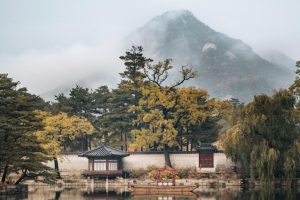In January 2021, President Joe Biden signed an executive order committing the United States to preserving 30 percent of its land and territorial ocean by the year 2030. The global conservation campaign, “30×30,” is perceived as a linchpin policy in the effort to protect what’s left of the Earth’s wild places and simultaneously curtail the worst effects of climate change.
Policy analysts at the Natural Resources Defense Council lauded the president’s move. But as common-sensical as the campaign sounds, it does raise issues of paternalism and consultation. Many Indigenous communities can be found in territories that represent the great green lungs of the world—vast forests where carbon can be trapped, fragile reserves of life-giving oxygen produced for the sustenance of all. And many of the regions that stand out as likely candidates for preservation are tracts associated with, claimed by, or tenuously treatied to Indigenous communities.
Indigenous people already shoulder much of the burden of history over the last 500 years, but both allies and antagonists in the so-called developed world are not done coming back to them for more. Western thought leaders lately repackage the Indigenous understanding of the interconnectedness and sacredness of creation in a last-ditch effort to contain runaway consumption and the climate change it propels. It’s as if, having failed so dismally to manage our own ecological affairs, we in the affluent world hope to shift responsibility for wise stewardship to Indigenous people.
Pope Francis taps into Indigenous wisdom in his encyclical Laudato Si’ (On Care for Our Common Home). The encyclical’s audience can be located among the consumer societies of the West, but his context is largely mined from Indigenous spirituality—once the target of the church’s own assimilationist collaborations.
But something else Laudato Si’ teaches is the mortal importance of relationship: “Because all creatures are connected, each must be cherished with love and respect, for all of us as living creatures are dependent on one another.” It is through encounter, welcoming, and listening that we connect on a profound level with people outside of the cultures and communities into which we are born, discovering a mystical connectedness uniting all people.
Relationship cannot be real when it is based on one side sacrificing and one side taking, whether that is in material resources such as timber or gold, or in extracting spiritual insights and sacred habits of being. Resourcing contemporary wisdom from Indigenous communities should only be undertaken with the deepest sincerity and humility, cognizant of the deep suffering of the past and the profound obligations for atonement of the present.
Today climate change activists rage and holler, fossil-fuel conglomerates achieve record profits, and consumers persuade themselves that they’re helping out by dropping the thermostat by a degree or two (hello, me!). But the world’s Indigenous communities carry on attempting mere survival before a great economic and political onslaught that to this day strains to obliterate them from history.
By all means, let us tap into their wisdom if it will mean protecting the Earth (but please, not if it means just turning another trick to perpetuate cultures of consumption). But a collateral outcome must be to offer what few intact Indigenous communities remain a fighting chance and real self-determination.
In Laudato Si’ Pope Francis writes: “It is essential to show special care for indigenous communities and their cultural traditions. They are not merely one minority among others, but should be the principal dialogue partners.”
Human dignity and human life are also worth preserving.
This article also appears in the April 2023 issue of U.S. Catholic (Vol. 88, No. 4, page 42). Click here to subscribe to the magazine.
Image: Unsplash/Jay Mantri













Add comment